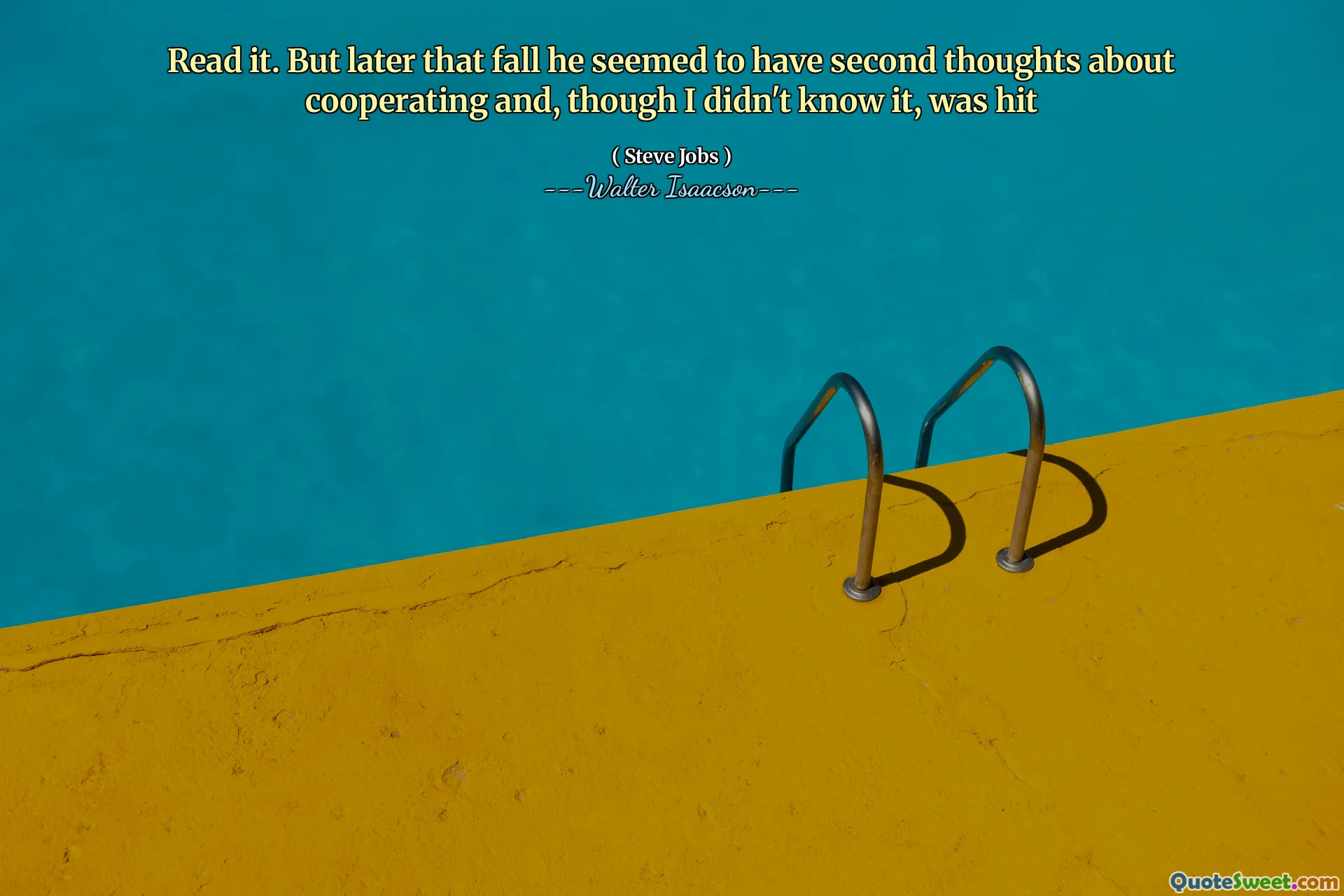
Read it. But later that fall he seemed to have second thoughts about cooperating and, though I didn't know it, was hit
This quote carries an air of suspense and subtle tension, hinting at an underlying story filled with complexity and perhaps betrayal. The phrase 'second thoughts about cooperating' suggests a shift in mindset, illustrating how humans often grapple with doubt and reconsider decisions, especially when those decisions involve trust and collaboration. This hesitation that comes 'later that fall' marks a critical moment—the point of change—where what once seemed straightforward becomes complicated. The fact that the speaker was unaware of the consequences ('though I didn't know it, was hit') adds a layer of dramatic irony, evoking a sense of invisibility regarding the turmoil others may face. In the broader context of Steve Jobs' narrative, as crafted by Walter Isaacson, this snippet could reflect moments where information asymmetry and missed communication had profound impacts on relationships and outcomes. It resonates with the universal experience of not knowing the full story behind the scenes and highlights the often unseen repercussions of decisions made in doubt. Reflecting on this, one is reminded how vital openness and transparency are within any form of cooperation; how important it is to remain honest with oneself and others about changing feelings or concerns. It’s also a humbling reminder of the consequences hidden beneath surface interactions which, if left unnoticed, can lead to significant emotional or physical harm. Ultimately, this short but loaded piece speaks to human fragility, the precariousness of trust, and the unseen struggles faced by those around us.





